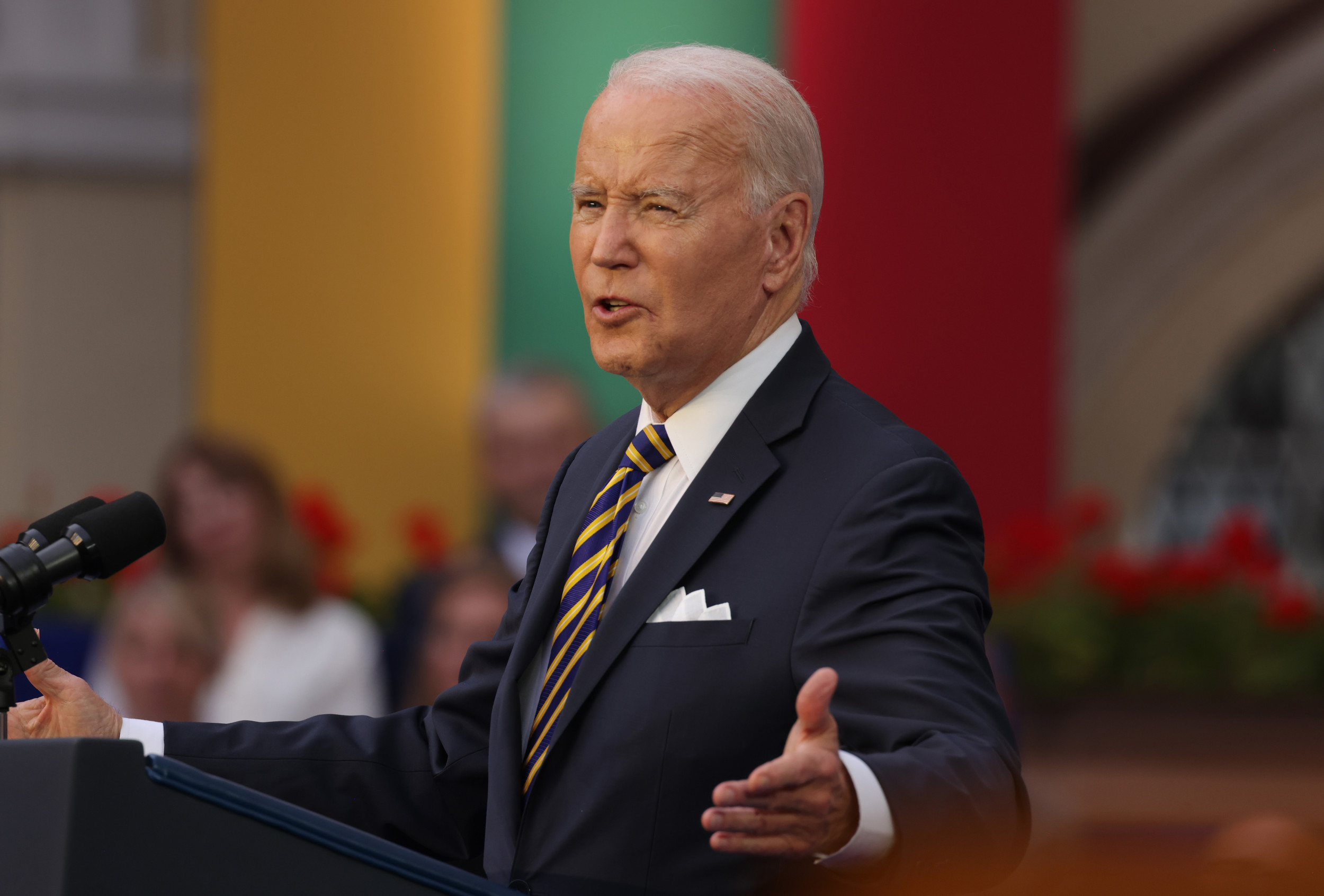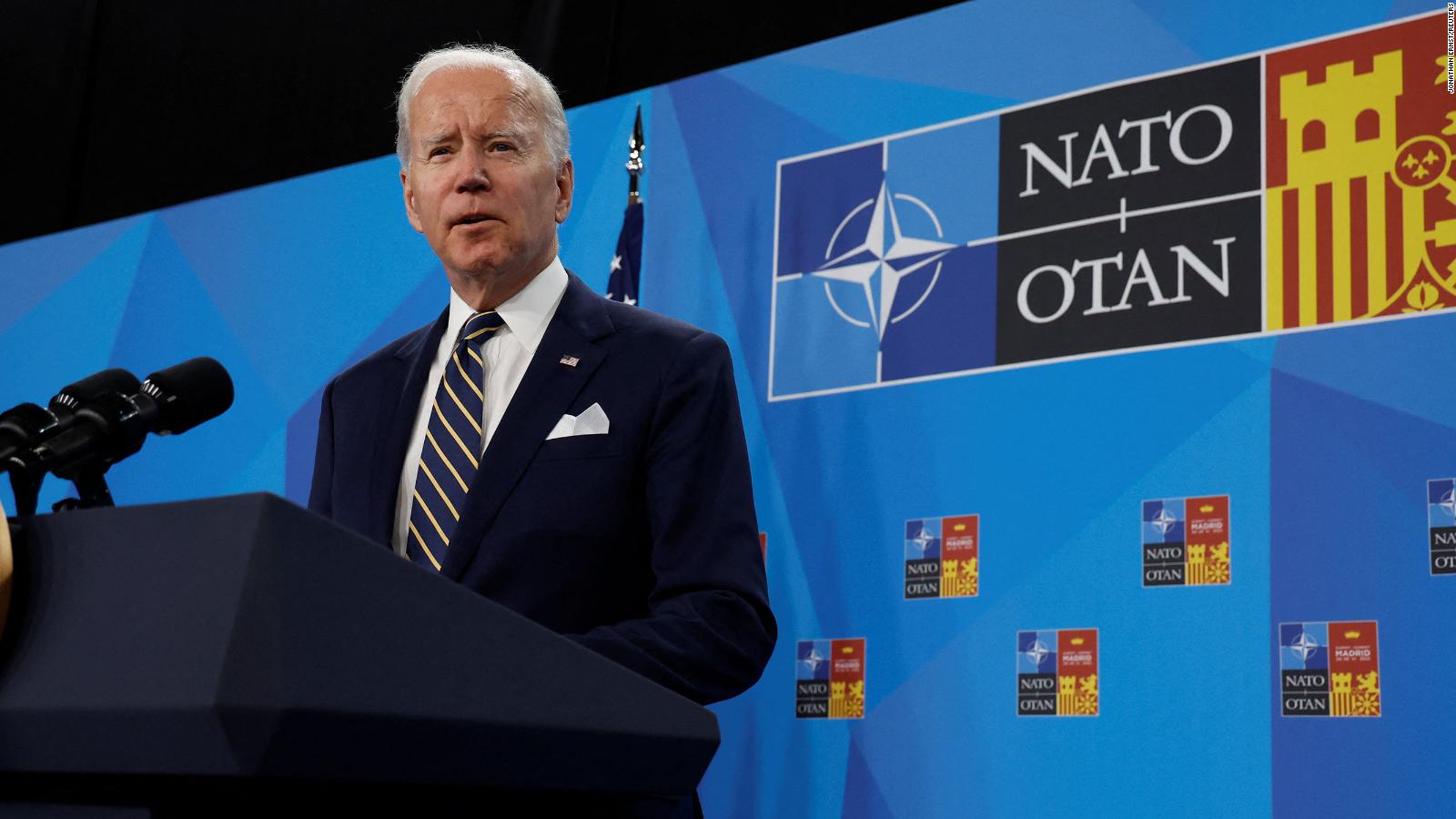Biden’s Role in NATO

Since taking office, President Biden has made strengthening NATO a top priority. He has engaged in extensive diplomatic efforts to revitalize the alliance and enhance its capabilities.
Biden has prioritized modernizing NATO’s infrastructure and technology to meet the evolving threats of the 21st century. He has also emphasized the importance of collective defense and burden-sharing among member states.
Diplomatic Efforts
Biden has undertaken numerous diplomatic initiatives to strengthen NATO. He has met with leaders from across the alliance to discuss common security challenges and reaffirm the importance of collective defense.
In 2021, Biden hosted a NATO summit in Brussels, where he announced a new initiative to enhance the alliance’s deterrence and defense capabilities. The summit resulted in a declaration that committed NATO members to increase their defense spending and invest in new technologies.
Enhanced Capabilities
Biden has also taken steps to enhance NATO’s capabilities. He has approved the deployment of additional troops to Europe and increased funding for NATO’s military exercises.
Biden has also supported the development of new technologies, such as artificial intelligence and cyber defense capabilities, to help NATO counter emerging threats.
Infrastructure Modernization
Biden has emphasized the importance of modernizing NATO’s infrastructure and technology to meet the challenges of the 21st century. He has supported the development of new command and control systems, as well as the upgrading of NATO’s air defense and missile defense capabilities.
Biden has also called for NATO to invest in new technologies, such as artificial intelligence and cyber defense capabilities, to help the alliance stay ahead of its adversaries.
NATO’s Response to the Ukraine Crisis
Biden nato – Following the Russian invasion of Ukraine in February 2022, NATO has undertaken a comprehensive collective response, providing substantial military and humanitarian aid to Ukraine.
NATO members have imposed severe sanctions on Russia, targeting its financial system, energy sector, and key individuals. The alliance has also significantly increased its military presence in Eastern Europe, deploying additional troops, aircraft, and ships to deter further Russian aggression.
Military Aid
- NATO members have provided Ukraine with a wide range of military equipment, including anti-tank missiles, air defense systems, and ammunition.
- The United States has committed to providing Ukraine with over $100 billion in military assistance, including advanced weapons systems such as the High Mobility Artillery Rocket System (HIMARS).
- Other NATO members, including the United Kingdom, Germany, and France, have also provided significant military aid to Ukraine.
Humanitarian Aid
- NATO members have provided Ukraine with billions of dollars in humanitarian aid, including food, water, medical supplies, and shelter.
- The United Nations estimates that over 10 million Ukrainians have been displaced from their homes due to the war, and NATO members are providing support to refugees and internally displaced persons.
- NATO members are also working to address the long-term humanitarian consequences of the war, such as the reconstruction of infrastructure and the provision of mental health services.
Ongoing Efforts
NATO continues to support Ukraine’s defense and sovereignty. The alliance is providing training and advice to Ukrainian forces, and is working to strengthen Ukraine’s air defense capabilities.
NATO is also coordinating with other international organizations, such as the United Nations and the European Union, to provide assistance to Ukraine and to hold Russia accountable for its actions.
Future of NATO under Biden’s Leadership: Biden Nato

President Biden has Artikeld a clear vision for NATO’s future role in global security, emphasizing the need for the alliance to adapt to meet emerging challenges. Biden believes that NATO must remain a strong and united force, capable of deterring aggression and promoting stability in Europe and beyond.
One of the key ways that Biden plans to adapt NATO is by strengthening its collective defense capabilities. He has pledged to increase US defense spending and to work with allies to improve NATO’s military readiness. Biden also plans to invest in new technologies, such as cyber defense and missile defense, to ensure that NATO remains ahead of potential adversaries.
Biden’s Vision for NATO, Biden nato
- Strengthening collective defense capabilities
- Investing in new technologies
- Expanding NATO’s role in addressing global challenges
In addition to strengthening NATO’s military capabilities, Biden also plans to expand the alliance’s role in addressing global challenges. He has called for NATO to play a more active role in combating terrorism, cyber threats, and climate change. Biden also believes that NATO should work more closely with other international organizations, such as the United Nations and the European Union.
Potential Impact of Biden’s Leadership on NATO
- Renewed commitment to NATO
- Increased defense spending
- Improved military readiness
- Investment in new technologies
- Expanded role in addressing global challenges
- Enhanced cooperation with other international organizations
Biden’s leadership is likely to have a significant impact on NATO’s long-term effectiveness and relevance. His commitment to strengthening the alliance and expanding its role in addressing global challenges will help to ensure that NATO remains a vital force for security and stability in the 21st century.
Biden’s recent remarks on NATO have sparked a flurry of debate, with some questioning the alliance’s relevance in the face of new global challenges. Senator Marco Rubio, a staunch advocate for NATO, has argued that the alliance remains essential for maintaining peace and security in Europe and beyond.
While some may disagree with Rubio’s assessment, it is undeniable that NATO has played a vital role in shaping the post-Cold War world, and its continued relevance will likely be a subject of ongoing discussion for years to come.
Biden’s NATO comments in the recent Biden ABC interview have sparked controversy. His stance on NATO’s relevance and commitment to collective defense has been widely debated, with some questioning whether his statements undermine the alliance’s credibility. Despite these concerns, Biden has maintained his position, emphasizing the importance of NATO in maintaining European security.
